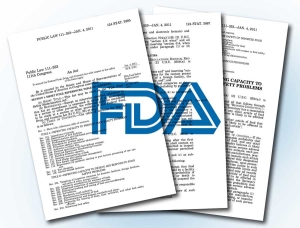The New York Times paid a visit to a New York apple farm and described “unending layering” of new rules and regulations that fall on an orchardist.
With thick rule books laying out food safety procedures, compliance costs in the tens of thousands of dollars and ever-changing standards from the government and industry groups, local produce growers are a textbook example of what many business owners describe as regulatory fatigue.
The Times quotes a conservative-leaning think tank that found that an orchardist now faces 12,000 restrictions and rules, up by 26 percent from decade earlier. As one example of regulation, the Environmental Protection Agency produced 10,400 words on pesticide spraying.

Food Safety Act – FDA (Good Fruit Grower illustration)
Farmers acknowledge that not all rules are bad, the Times reported, because they improve worker safety and food safety. The grievances relate to the sheer amount of time and money that it takes to comply. The article describes efforts by the Trump Administration to roll back some regulation.
One frequent discussion point is the Food Safety Modernization Act and the role of the Food and Drug Administration.
The F.D.A.’s deputy commissioner for foods, Stephen Ostroff, said the agency gained extensive input from farmers and it planned to continue working with them. “Our goal is not to add to their burden,” Dr. Ostroff told the Times. “Our goal is to help them produce safe food.”
The article describes a federal inspectors who in September visited the farm owned by the Ten Eyck family near Albany, New York.
The investigators arrived on a Friday in late September and interviewed the farm’s management and a group of laborers from Jamaica, who have special work visas. The investigators hand delivered a notice and said they would be back the following week, when they asked to have 22 types of records available. The request included vehicle registrations, insurance documents and time sheets — reams of paper in all.
Over the next several days, the Ten Eyck family, which owns the farm, along with the staff devoted about 40 hours to serving the investigators, who visited three times before closing the books.
“It is terribly disruptive,” said Peter G. Ten Eyck II, 79, who runs the farm along with a daughter and son. “And the dimension that doesn’t get mentioned is the psychological hit: They are there to find something wrong with you. And then they are going to fine you.”
The article can be found here. (May require subscription.)






Leave A Comment